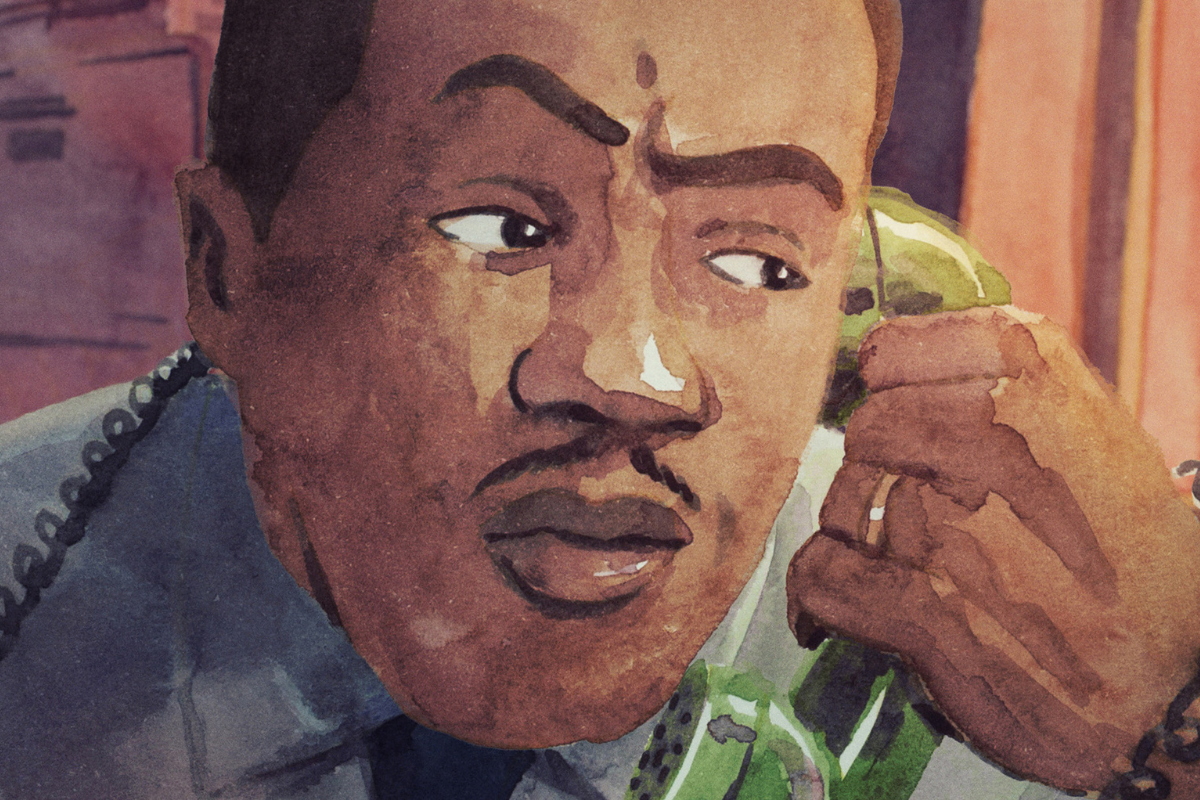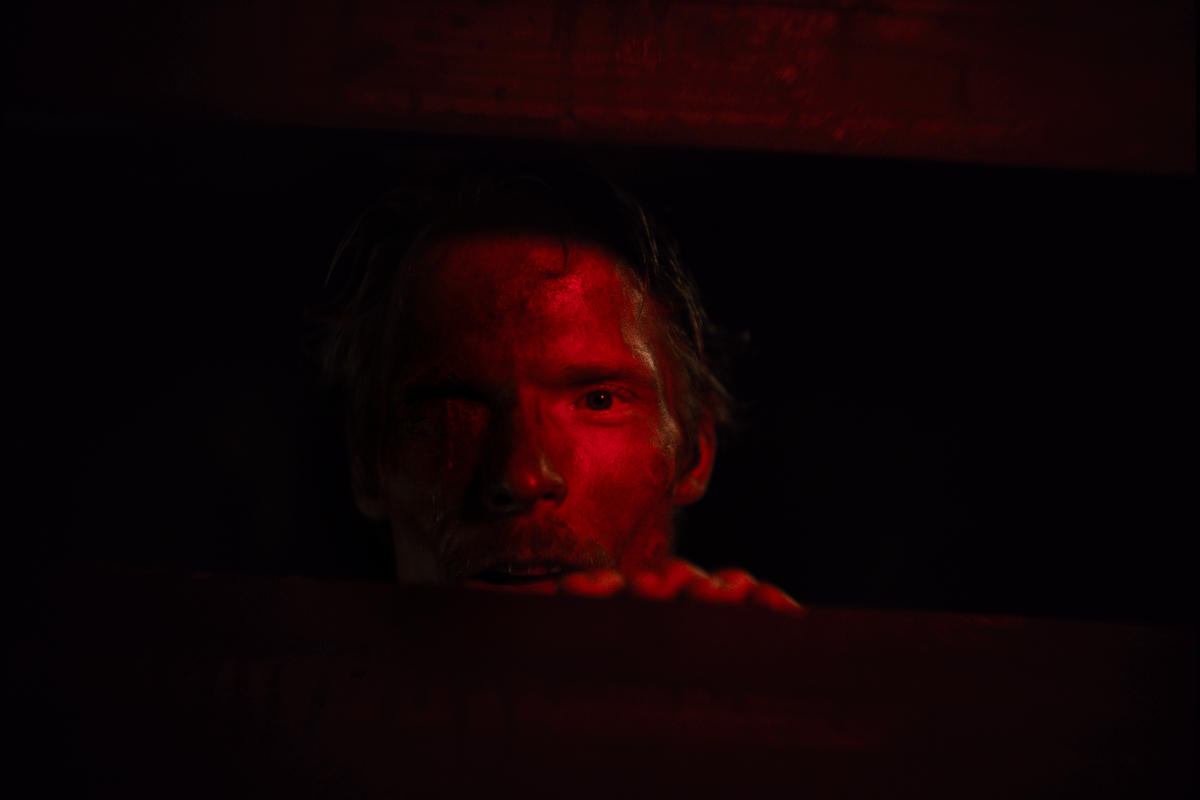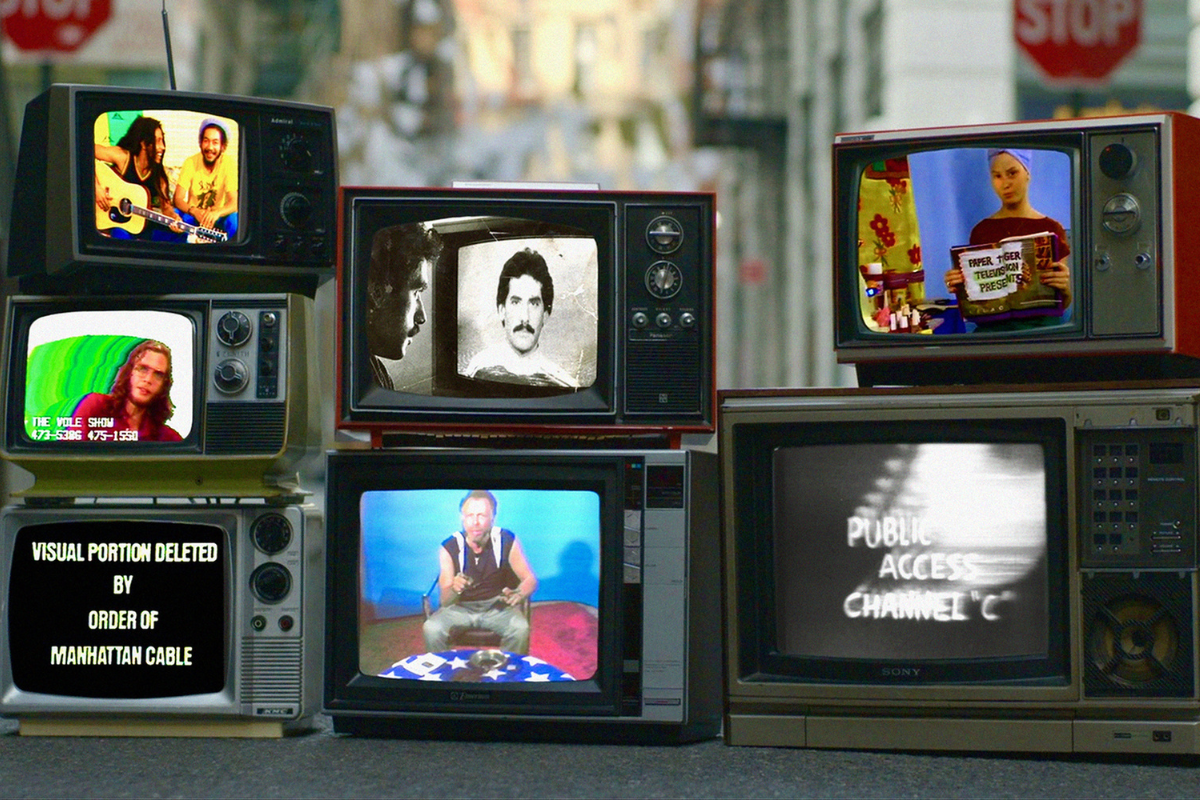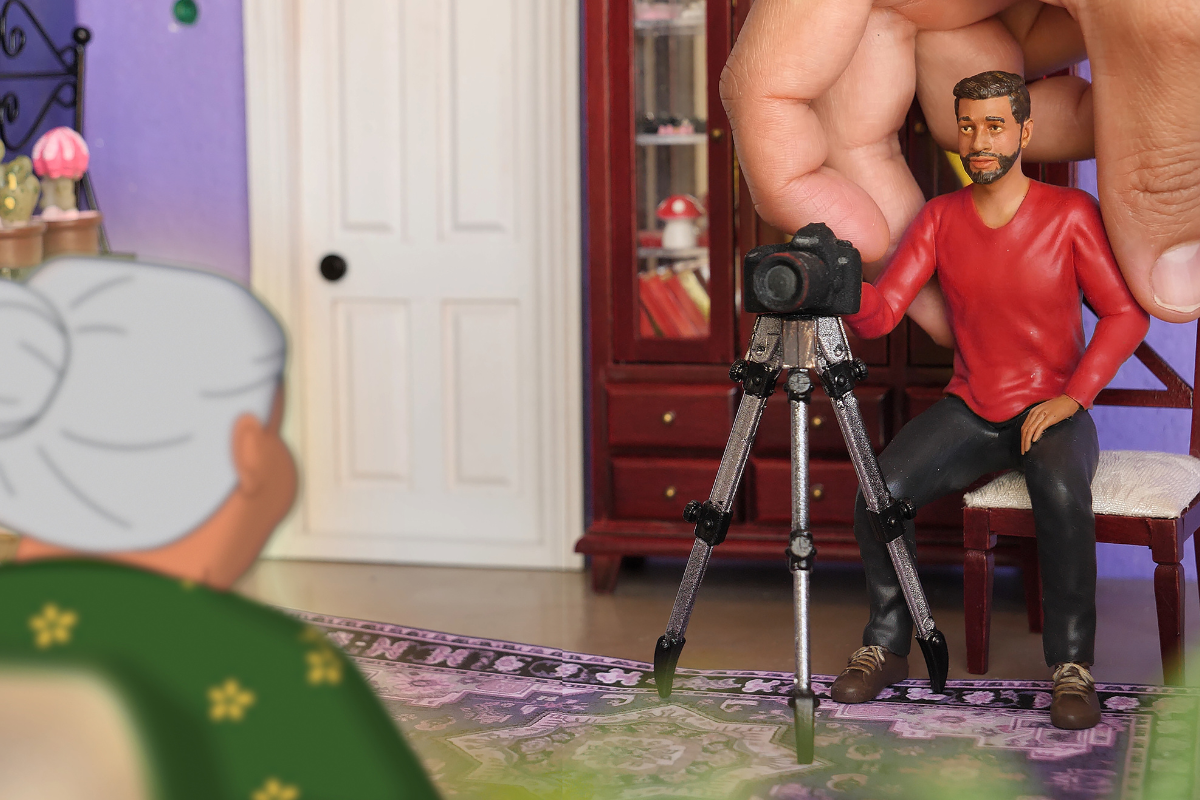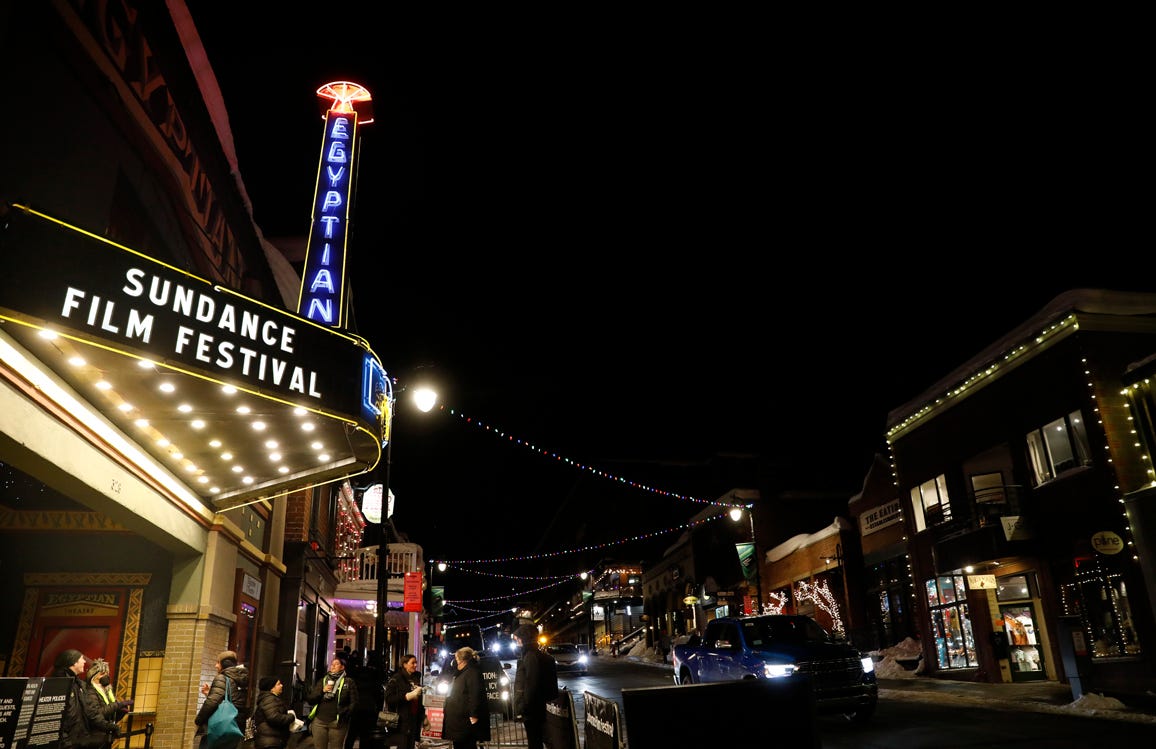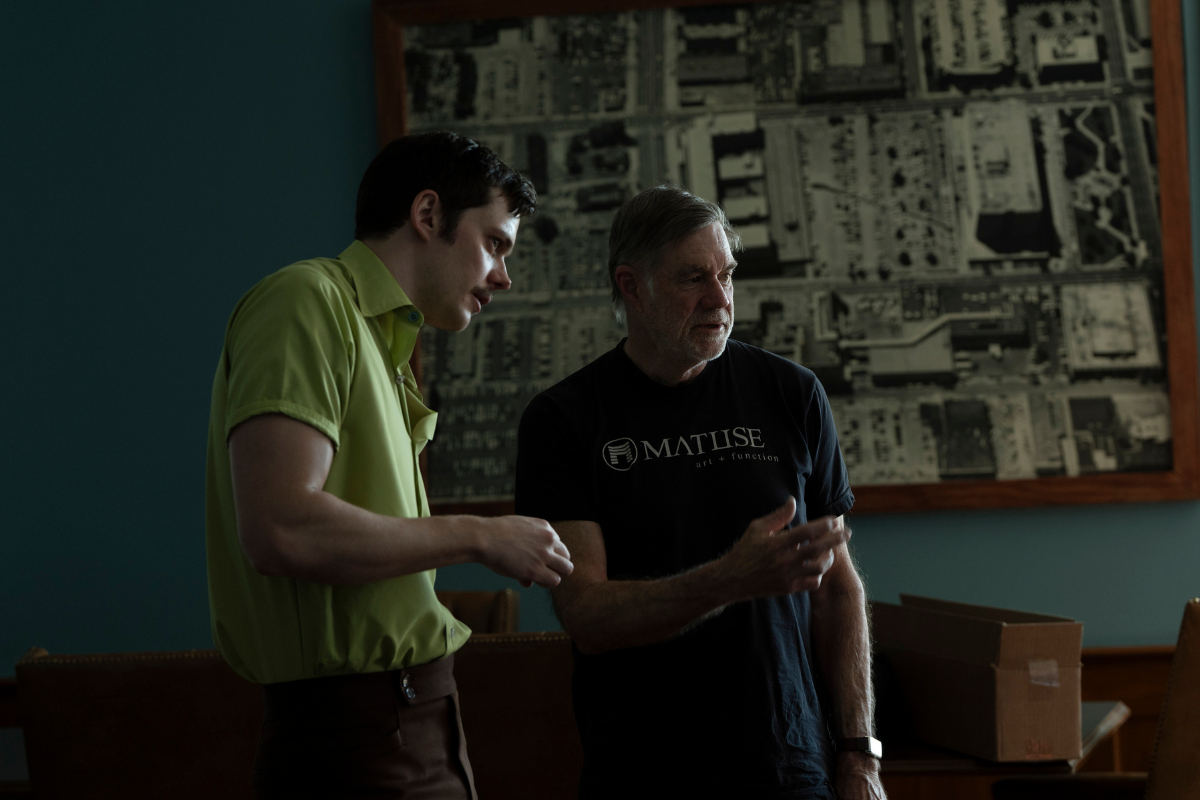DEFUND at TIFF21: Making Films That Matter When They Matter
Script contributor Heather Taylor had the opportunity to speak to actors-turned-directors Khadijah Roberts-Abdullah and Araya Mengesha about their directorial debut, DEFUND, the importance of community and grace, and why you shouldn’t wait for permission to create.
“DEFUND is self-funded because social movements don’t wait for grant applications.”
Reading that last line in DEFUND's press release, I gave a little “hell yeah!” whoop in my house. So many filmmakers have pertinent and timely stories to tell but don't have the means at their disposal to make them. Khadijah Roberts-Abdullah and Araya Mengesha challenged those odds to create DEFUND, their directorial debut premiering at Toronto International Film Festival 2021.
DEFUND is the “Unabashedly Nuanced Short Film” written and directed by Khadijah Roberts-Abdullah and Araya Mengesha, They both star in the film with Anand Rajaram and Karen Robinson.
Brother (Araya Mengesha) and Sister (Khadijah Roberts-Abdullah) are millennial twins, trapped in their apartment and trying to stay sane at the height of the 2020 pandemic. Brother and Sister are also Black and are watching the BLM uprisings unfold on their phones. Fed up with sitting on the sidelines, they head out under the cover of night to discover that activism on the streets is very different from what they’ve seen on their screens.
The Winding Path to Filmmaking
Before creating DEFUND, Roberts-Abdullah, and Mengesha
moved in the same circles -- first as fellow actors in the theater, then as roommates for the past four and a half years.
Khadijah Roberts-Abdullah didn’t really imagine becoming a filmmaker early on in her career. She started as an actor in theater and trained at Humber College. By the time she finished theater school, she became quite disillusioned with that part of the industry and really wanted to focus on creating her own stories. Thankfully, her acting program also trained her in devised creation so she knew how to develop work from the ground up.
As she was creating her own devised theater, she was also auditioning for film and TV and not getting the roles that she wanted. So she co-wrote and produced her first short film, PIGS, about a frustrated server at a backyard party who loses all of her inhibitions on the guests, casting Mengesha in one of the roles.
Araya Mengesha first started acting when he was a kid. He was part of the first set of young actors that originated the young Simba role for The Lion King in Toronto. He then broke into television with a role in a documentary-style show called MYSTERY HUNTER. This was his job from age 14 to 21, and he'd get to travel around the world, investigating mysteries that kids were interested in.
The different perspectives and experiences he had traveling the world with MYSTERY HUNTER were a big influence on how he thinks about storytelling, the connectivity of people, and how specific stories can speak to larger experiences. It's something he continues to bring to work as an actor and filmmaker.
How DEFUND got its start
When the pandemic came around, the world shut down and Roberts-Abdullah and Mengesha -- as well as many other actors/ creatives -- lost out on a lot of work. At the height of the Black Lives Matter movement in 2020, the two were roommates oscillating between panic about the pandemic and panic about the social movements shaping the world.
In June of 2020, Roberts-Abdullah’s good friend, J Stevens, who she had worked with on several other projects over the last couple of years, reached out to her. They basically said: “Hey, I'm a white filmmaker with a particular skill set and you're a black artist whose voice I respect and admire, and I'd like to contribute to you being able to tell whatever story makes sense to you right now.”
With this offer in hand, Roberts-Abdullah turned to Mengesha
and asked if he wanted to write a story and make something together. The answer? A resounding yes.
Finding the Story of DEFUND Together
At the time Roberts-Abdullah and Mengesha wrote DEFUND, their lives were super heightened. Before last June, they lived together but hadn’t been in each other’s space every day. Now they were doing everything together while also experiencing the largeness of what was happening in the world from their small space in their small corner of the city.
It was fitting that Mengesha had just created a short film, A DAY FOR LOVE, where the main character feels those big feelings of early love but pandemic-style -- through a screen. The character just wants to live in that loved-up bubble but the world outside keeps trying to get in.
Taking those themes of isolation and protection, Roberts-Abdullah and Mengesha asked themselves: what do you owe the world? How do you interact with it? How much of it can you actually be separated from it? Those questions lead to a lot of conversation around everything being paused. To them, it was clear that everything was not really paused. It was only paused if you had the privilege to be in any kind of pause. The world either functioned for you or against you and they used that as their framework to construct a story tailored to their own experience.
Both filmmakers were trying to navigate how to actually engage in a meaningful way with what was going on, in a way that felt honest for them. It was these ongoing discussions that got distilled into what became DEFUND.
Taking an opportunity and running with it
Everything about this film centers around filmmakers fearlessly taking opportunities, even when they didn’t feel ready. It was only two months between the moment Stevens reached out and they started filming.
They had a three-week window to write a draft and so they played to their strengths. They modeled the characters that they would be playing after themselves, and because they knew each other so well, they were just writing for each other. They broke out the scenes between them to write individually, then trade back and forth. For some of the more dynamic sequences they talked it out in the way it happened on the screen and that became the scene in the film.
Another impromptu opportunity came before they even started filming. Stevens was working on another shoot and called Roberts-Abdullah and Mengesha out of the blue -- they had an amazing camera that would be perfect for a pivotal scene where Brother and Sister leave their house in the middle of the night and bike down the empty streets of Toronto. But if they wanted to do it, they had to shoot it right then.
Roberts-Abdullah turned to Mengesha and said “Are we really going to do this now? Is our hair OK? Should we go?” And they did. They saw the opportunity and jumped right in. The urgency of the impromptu filming ended up helping them. It captured the feeling of freedom they wanted the scene and the sequence to show as the audience sees the twins go out into the world and experience the vastness of being outside after being so confined due to what was going on in the world.
Shifting from Writing to Directing
Roberts-Abdullah wrote and starred in her first film but was advised not to direct it. “I'm very thankful that I took that advice because if I had tried to do that the first time around, I think I would have lost my mind. I'm so thankful that DEFUND is our directorial debut...and I'm glad that it was a joint effort because it was really beneficial to have each other as outside eyes. Having Araya on the monitor while I was performing was really beneficial and vice versa.”
For Mengesha, it was important that he and Roberts-Abdullah talked so much about what they wanted from the piece. “It was easier to identify if we were on track with what the vision is as we created all of it together.” Being in tune with each other and what they were trying to make, gave them both a sense of ease, which translated directly to the ease of the acting on screen.
One of the things that they didn’t anticipate was having to switch from writer brain, where everything and anything is possible, to director/ producer brain, where you have to make those things happen. But they got it done, filming everything in four days with a crew of four (including them). Despite the time crunch, they made sure everything was done with great consideration for the process and for what people were going through at that time. For the filmmaking duo, it was important to move through each day with grace to give the utmost care to the work and to each other.
After the film was finished, they reached out for feedback before they submitted it to festivals. It was important to get this film out into the world, but with COVID still impacting festival runs and distribution, they wanted to find the best path forward. The support they received was only people's time, as they expected, but also unsolicited financial help. The assistance they received was not something either Roberts-Abdullah or Mengesha imagined was possible, but it was made possible by an active filmmaking community that was involved all the way from its inception to the start of its festival run.
The Impacts of COVID
It was challenging with all the COVID safety aspects in place, working with masks on while they took over their apartment to film, but to Roberts-Abdullah and Mengesha, the bigger challenge came during post-production. The duo didn’t anticipate what that process would be like in a pandemic world. They never met their sound team or colorists. The entire process was done through online correspondence and phone calls. At times it could be trying and it required a lot of patience and understanding.
“The reality was not just that we were making a film. These people were largely volunteering their time and services while also living through a pandemic,” Roberts-Abdullah explained. “We had to be conscious and considerate of the fact that, though this was a labor of love and a passion project that we really wanted to get done, there were human beings putting their time and effort into helping support us, which is something that I will forever be grateful for.”
Mengesha echoed Roberts-Abdullah’s sentiment: “It was a beg, borrow, steal, call-in-all-your-favors kind of situation but everybody who interacted with the script or the film itself, also did the project because they believed in it. There was an extra element of wanting to see this project to the end.”
Advice for other creators
Created during a tumultuous time, DEFUND was both meaningful and timely -- and had to be made in and of that moment. But how should other creators approach creating their own work in the same vein?
For Roberts-Abdullah, community is really key: “There will be a plethora of people who are just as hungry as you are to make something. And I guarantee you that you can piecemeal all of the resources to make anything. Issa Rae talks about growing laterally -- If you want to go fast, go alone. If you want to go far, go together.”
Mengesha stresses the importance of seizing opportunities. “Don't wait to have the inspiration for the perfect thing that you want to write. Once you've grabbed your creative partners, start. You already have the story, you already have the thing that's important to you. You may not know exactly how it needs to be articulated, but once you begin to follow through on the impulse of whatever it is that speaks to you, the story will reveal itself to you.”
DEFUND premieres at Toronto International Film Festival on September 10, 2021. Cinematography and editing by J Stevens, with music composed by Denise De’ion. Produced by Khadijah Roberts-Abdullah (2Skins Entertainment), Araya Mengesha (Incognito Ave), and J Stevens.
Follow the team on Instagram: DEFUND - @defund.film; Araya - @callmemistertibbs; Khadijah - @djpaulydij; J - @the_j_stevens
Learn more about the craft and business of screenwriting from our Script University courses!
Heather Taylor is a writer, director and co-founder of the creative studio, Cereal Made. She was a 2018/19 resident of the Bell Media Prime Time TV program at the Canadian Film Centre (sponsored by ABC Signature Studios), and was part of the 2019 Corus Writer’s Apprentice Program where she interned in The Hardy Boys writer's room (Hulu/ YTV). She was a finalist in the Austin Film Festival 2019 script competition. Heather graduated with a Masters in Screenwriting from City University, London. She’s an idea machine, the Indiana Jones of research, and builds supernatural worlds with real world consequences. Her career highlights include her first feature film, The Last Thakur, which premiered at the London International Film Festival; her sci-fi web series, Raptured; and Stitched, her award-winning horror short. Heather is currently working on her next feature film, ROT, with New York-based BullMoose Pictures. See more of her work on HeatherATaylor.com and follow her on Twitter: @heatherAtaylor / @redonblack YouTube: redonblackfilms


